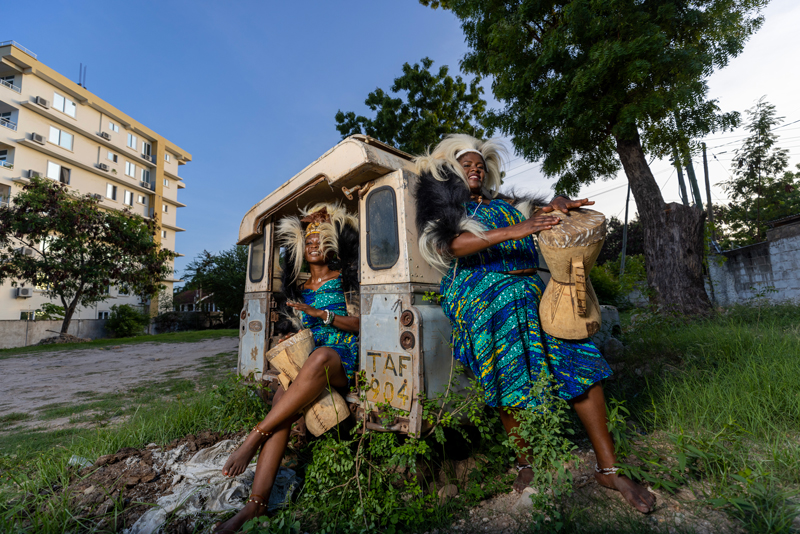(headline image: The Zawose Queens – Photo by Michael Mbwambo)
The Zawose Queens, composed of Leah and Pendo Zawose, are self-motivated musicians whose work channels the spirit and fire of their ancestral heritage. Their music pulsates with traditional instruments such as the chizeze fiddle, illimba thumb piano, and ngoma drums, creating a unique mix of deep, high, and delicate vocal harmonies. Their debut album, Maisha, marks the beginning of a new era for the Zawose family.
Leah and Pendo, both singers, songwriters, and multi-instrumentalists, emphasize that their music is a proud expression of their heritage. The Zawose Queens’ music integrates traditional sounds with modern electronic elements, connecting deeply with nature, ceremony, and ritual. The lyrics, sung in their native Kigogo language, express their passion for music, the wonders of life, and pride in their environment and East African roots.

Maisha, produced by UK-based producers Oli Barton-Wood and Tom Excell, was recorded in Zanzibar and Bagamoyo, Tanzania. The album features 11 original songs, highlighting the changeable polyrhythms and polyphonic singing of the Gogo people from the Dodoma region. The Gogo are known for their small but powerful muheme drums, played exclusively by women, and their rich musical traditions. The late Dr. Hukwe Zawose, a prominent figure in Gogo music, was Pendo’s father and Leah’s grandfather.
Hukwe Zawose, a showman with a five-octave voice, released several albums and toured globally with his ensemble. He established an arts college in Bagamoyo, where many of his 17 children studied Gogo music. Despite his conservative views, which limited women’s participation to backing harmonies and muheme drums, the Zawose Queens have gradually carved out a space for themselves in the spotlight.

The transformation of Leah and Pendo into The Zawose Queens was facilitated by workshops, jam sessions, and collaborations with UK electronic DJs. The project was spearheaded by Aziza Ongala and Pepe Waziri, who recognized the Zawose women’s talent and brought them into a British Council-funded initiative. This led to the creation of new material that blends traditional Gogo music with contemporary concerns and Western production styles.
The album Maisha features a variety of songs, from traditional-sounding tracks to those enhanced with electronic elements. It includes collaborations with Wamwiduka, Baba Leah (a master of the chizeze fiddle and original collaborator with Hukwe Zawose), and other musicians. The songs were recorded in diverse settings, from live beach recordings in Bagamoyo to a rooftop in Zanzibar.
Maisha aims to inspire other women artists in East Africa, demonstrating that it is possible to honor tradition while embracing innovation.


